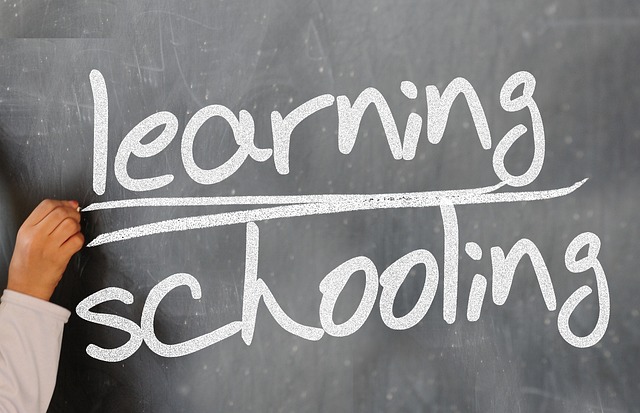College students face a delicate balance between thriving socially and preserving personal space, both essential for holistic development. Effective time management recognizes this connection, allowing them to recharge through self-care while staying focused on academics. Signs of imbalance include neglecting self-care or schoolwork. Maintaining harmony involves setting boundaries, joining relevant clubs, using technology mindfully, and fostering open communication to ensure social life enhances academic success and overall well-being without burnout.
In college, balancing social and private life is an art. The freedom and distractions of campus life can easily lead to an imbalanced lifestyle, impacting academic performance and overall well-being. Understanding the need for this delicate equilibrium is the first step. This article explores strategies such as setting boundaries, utilizing technology mindfully, and cultivating a supportive network to help students navigate their social lives while prioritizing personal time, ensuring a harmonious college experience.
- Understanding the Need for Balance in College
- Recognizing the Signs of an Imbalanced Lifestyle
- Strategies to Enhance Social Connections on Campus
- Setting Boundaries: Prioritizing Personal Time
- Utilizing Technology Mindfully for Social Engagement
- Cultivating a Supportive Network for Sustained Balance
Understanding the Need for Balance in College

In the vibrant, bustling college environment, students often face a unique challenge—navigating the delicate balance between thriving socially and safeguarding their personal space. This duality is not merely a preference but an essential aspect of holistic development during one’s academic journey. Many students enter college with high hopes of making friends and building a strong social network, which is crucial for emotional well-being and a sense of belonging. However, the pressures of academic demands, extracurricular activities, and the allure of campus social scenes can sometimes lead to an imbalance.
The need for balance arises from recognizing that personal growth and academic success are deeply intertwined with one’s ability to manage time effectively. While engaging in social activities is vital for fostering connections and a sense of community, it’s equally important to allocate dedicated time for studying, self-care, and reflective moments. Finding equilibrium allows students to recharge, maintain focus, and approach their academics with renewed energy—a crucial aspect of balancing social life in college.
Recognizing the Signs of an Imbalanced Lifestyle

Many college students struggle with recognizing when their social and private lives are out of balance. Signs of an imbalanced lifestyle can include consistently prioritizing social activities over academic responsibilities, feeling overwhelmed by the number of social commitments, and neglecting personal care or health due to excessive socializing. You may also notice a decline in academic performance, increased stress levels, or feelings of exhaustion that don’t seem to improve with rest if your social life is taking precedence over your personal well-being.
Being mindful of these signs is the first step towards making positive changes. It’s crucial to remember that a healthy college experience involves finding a harmonious balance between engaging in social activities and focusing on academic goals, self-care, and personal growth.
Strategies to Enhance Social Connections on Campus

Maintaining a healthy balance between social and private life in college is essential for overall well-being. One effective strategy to enhance social connections on campus is to actively participate in extracurricular activities, clubs, and organizations that align with your interests. These platforms provide opportunities to meet like-minded individuals who share similar passions, fostering meaningful friendships and building a supportive network. Joining study groups or academic clubs not only aids in academic success but also creates a sense of belonging within the campus community.
Additionally, leveraging technology can help bridge social gaps. Social media platforms and messaging apps facilitate easy communication with peers, enabling you to stay connected even when physically apart. Organize virtual hangouts, online games, or study sessions using these tools to strengthen bonds and maintain an active social life, especially during periods of remote learning or restricted campus access.
Setting Boundaries: Prioritizing Personal Time

In the dynamic environment of college, balancing social and private life requires setting clear boundaries. Students often find themselves swept up in the excitement of new friendships, campus events, and extracurricular activities. While socializing is a vital part of the college experience, prioritizing personal time is crucial for maintaining mental health and academic performance. Recognizing when to disconnect from social obligations and allocate dedicated time for solitary pursuits, such as studying, hobbies, or simply relaxing, can foster a healthier balance.
This involves learning to say no to social invitations when necessary, setting specific study hours, and creating a routine that respects both social interactions and personal downtime. By doing so, students can navigate their busy schedules with purpose, ensuring they are fully present in each aspect of their lives.
Utilizing Technology Mindfully for Social Engagement

In today’s digital era, technology plays a pivotal role in our daily lives, especially for college students striving to balance their social and private lives. Social media platforms, messaging apps, and video calls offer unprecedented ways to connect with friends, classmates, and family worldwide. However, mindful utilization is key. Students must set boundaries; for instance, designating specific times for checking notifications or using apps solely for group projects and study sessions. This approach ensures that technology enhances social connections without encroaching on personal time and space.
By being intentional about their digital engagement, students can foster meaningful interactions while maintaining a healthy balance. Mindful technology use allows for deeper conversations with friends, productive collaborations, and a sense of community—all essential aspects of a fulfilling college experience. It’s about navigating the virtual landscape selectively, ensuring that online interactions complement rather than overwhelm one’s offline pursuits.
Cultivating a Supportive Network for Sustained Balance

Cultivating meaningful connections is a cornerstone in maintaining balance between your social and private life during college. Building a supportive network involves surrounding yourself with like-minded individuals who respect your need for both companionship and personal space. This could mean joining clubs or societies aligned with your interests, where you’re likely to meet friends who share similar goals and values. On campus events and activities also provide excellent opportunities to expand your social circle while keeping your academic commitments in mind.
A key aspect of fostering a balanced network is open communication. Expressing your boundaries and expectations clearly to both new and established friends ensures everyone understands the importance you place on personal time. By doing so, you can prevent feelings of burnout or isolation, ensuring that your social life enhances rather than detracts from your overall college experience.






